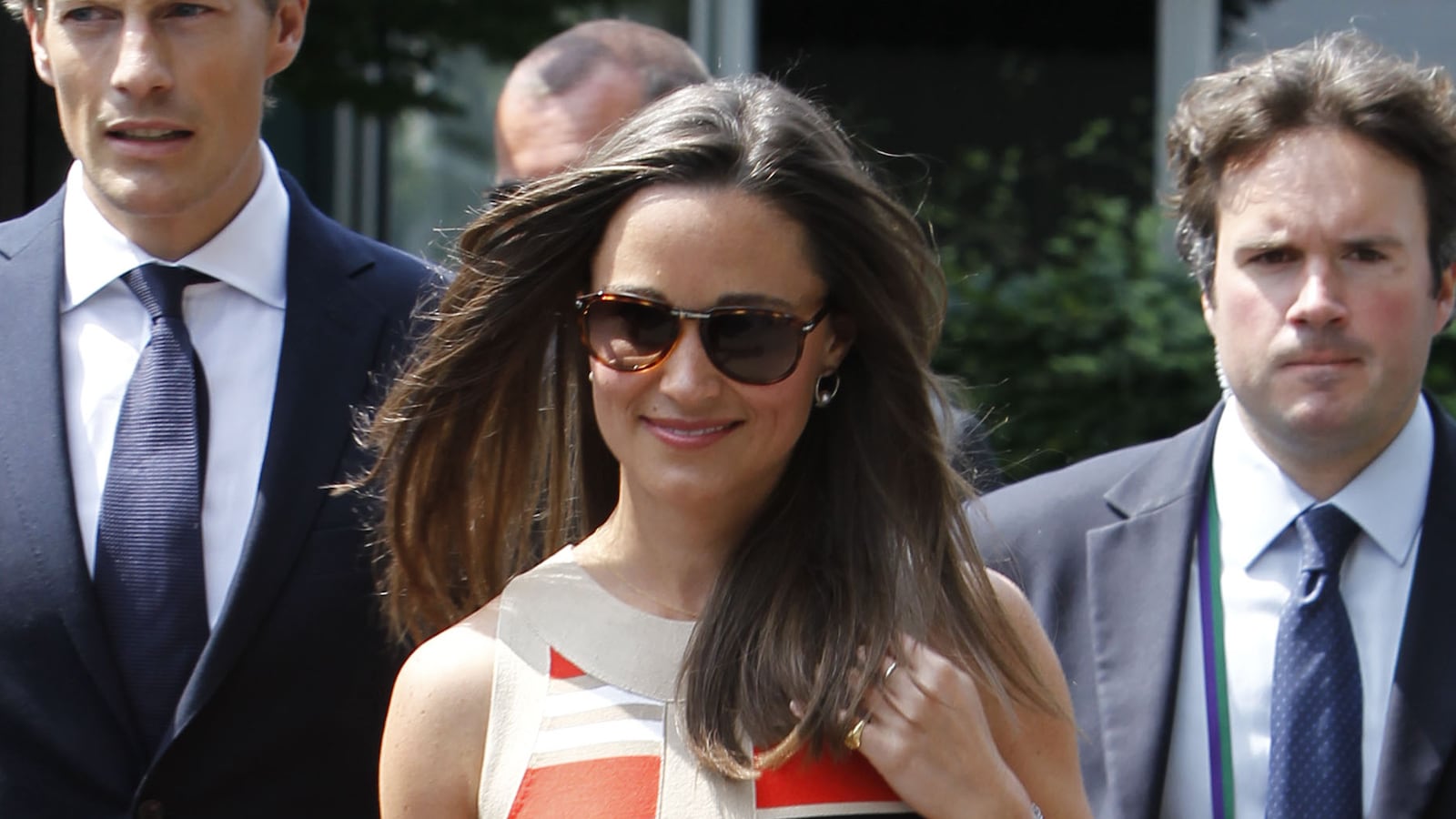Laugh all you like at her excessively simple party tips—and plenty of us have chuckled at the suggestion that turkeys are perfect for “larger gatherings”—but Pippa Middleton has clearly got the Midas touch.
For new figures published this week show that the supermarket magazine she writes for in England has enjoyed a staggering 17.4 percent rise in circulation in the past six months, a bigger jump than any other publication in the U.K. for the most recent period of sales figures. Pippa’s arrival has transformed Waitrose Kitchen from a dowdy has-been into a dynamic force to be reckoned with that is now the U.K.’s 15th-biggest magazine title with sales of 412,000.

Or, as the creators of the satirical @pippatips Twitter account (which Pippa’s humorless lawyers are trying to shut down) might say: “Putting the sister of Kate Middleton on the cover of your magazine is a fun and easy way to boost your circulation.”
Pippa’s commercial success at Waitrose provides hard evidence that the public obsession with her, which began when she stole the limelight at her sister’s wedding in a butt-hugging bridesmaid’s gown, is in no danger of abating any time soon. More amazing still, however, is that it seems Pippa has been able to pull off the notoriously difficult trick of converting tabloid notoriety into hard cash.
And while her party-planning book Celebrate was widely mocked (“a good book for people who need instructions to make ice,” “a cultural tea bag for the American market”) it was far from the commercial failure some implied. While there was some rather unpleasant rubbing of hands in the reporting of sales, with journalists claiming that they were “as flat as last night’s champers,” based on Amazon rankings, they actually weren’t bad at all. The Amazon book charts are not reflective of longer-term trends, and almost all journalists (except me) ignored the fact that Celebrate reached No. 7 on the New York Times sought-after “hardback advice and miscellaneous” chart.
If being a New York Times bestseller is a fail, then failure’s never looked more appealing. The publishers paid a fairly modest $500,000 for the book and, between serializations and foreign rights, easily turned a profit on the deal, industry sources say.
What is undoubtedly true is that had the palace not banned Pippa from promoting the book, it could have been a much, much bigger commercial success. Also true is that the team at Pippa’s publisher, Michael Joseph, part of Penguin, found the palace such a nightmare to deal with, as they vetoed publicity event after event, that it passed up the opportunity to work with Pippa on a second book.
Pippa’s success at Waitrose is also likely to be cheered by her American boss, Vanity Fair’s Graydon Carter, as it proves that despite all the naysayers, Pippa still shifts product.
The question that will inevitably be asked, of course, is why are we still interested in her? It can’t still be that butt, can it?
But in a world where people are interested in the Kardashians, why should we be mystified by the fascination with Pippa?
What’s not to be fascinated by?
Here is a pretty young girl whose parents were flight attendants but whose sister will one day be queen. That’s a pretty good starting point for fascination, whichever you slice it.
Another element of the story that is so intriguing about Pippa is that while we know, or at least think we know, how the narrative of Kate will play out, Pippa’s future is still uncharted territory. Will she settle down to a life of quiet obscurity and shooting parties and marry an aristocrat like the establishment hopes? Or will she move to New York, tell the palace to sod off, become a star, and open the world's best-connected party-planning business?
Pippa gets a rough ride in the U.K. press. Part of the treatment is down to the lingering unease over William’s controversial decision not to marry an aristocrat, which gets indirectly vented on Pippa by proxy, but it's also her refusal to play the game—she has never given a single interview, and that has annoyed the press.
But what the Waitrose sales figures show is that Pippa is that magic commercial thing; critic-proof.
The papers can slam her all they like, but for now, at least, the public still wants to hear what she has to say, even if that is only how to make crispy duck pancakes or what to wear at Wimbledon, and it is the much-mocked Pippa—and her employers—who is having the last laugh.






